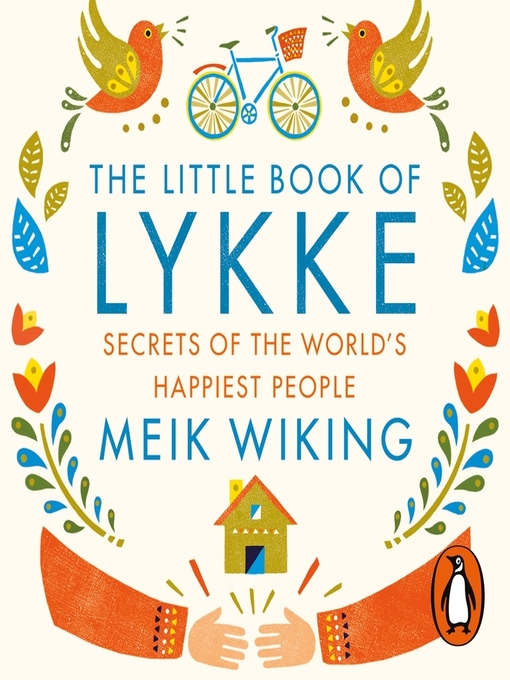$ 0.000 %
Lykke (LKK) Rank 12773
Lykke is a semi-decentralized trading platform with zero fees for all assets and financial instruments. The platform is based on blockchain technology. The LKK token is a Colored Coin representing shares in the Lykke exchange.
| Mkt.Cap | $ 0.00000000 | Volume 24H | 0.00000000LKK |
| Market share | 0% | Total Supply | 1.29 BLKK |
| Proof type | Open | $ 0.00000000 | |
| Low | $ 0.00000000 | High | $ 0.00000000 |
Where can I find an in-depth technical description? : lykke
Reading this book has made me want to go out and find little ways to do good that will bring happiness. The book's message is selfless and that's definitely rubbed off on me and inspired me to contribute more to society.
Rostam talks about the creation of Lykke Li's 'hard rain'

I love to read and know sometimes it takes a few chapters for a book to come together. That was my hope for this book but it didn't happen. If I had wanted to read a political book I would have ordered from a different genre. In The Little Book of Lykke, Meik identifies the six factors that explain the majority of differences in happiness across the world—togetherness, money, health, freedom, trust, and kindness—and explores what actions we can take to become happier. As he reveals, we can deepen our blissfulness and contentment with little adjustments in our behavior, whether it’s eating like the French (sitting around a table and savoring our time) or dancing the tango like Argentinians in Buenos Aires.

As much as I appreciated the anecdotes about Danish life and the multitude of data that was compiled and included to back up each of the theories towards their continuing happiness, I found little to take away from this and assimilate into my own life. Listening to a few chapters every morning was an uplifting way to start the day, but after reading a number of similar titles I found nothing that made this ultimately memorable. Wiking covers many subjects in an attempt to measure just what happiness can look like, from health to wealth to freedom to togetherness. It's appreciative that Wiking continued to state that Denmark and Scandinavia don't hold a monopoly on happiness as there are many countries that celebrate well-being in different but effective ways. And yes, there are some examples of the United States excelling in projects centered around well-being and happiness.
Trivia About The Little Book o...
We may not be able to move into a Bofaellesskab, but is there a way we can still bring that spirit of collaboration into a big city? Here are six ways you can add more lykke in your life, based on Wiking's six pillars. In this book I was in a perpetual state of goosebumps showing up, several times of passionate "let's do this", and yes, as strange as it may sound, crying.
This program is for people whose entire life revolves around travel e.g. travel bloggers, travel photographers, full time travellers, or the people who spend all their leaves and weekends in exploring new places. You should buy memories, not things, and have a gratitude journal, however, don’t incorporate it into your routine do it once a week or whenever you feel like it (basically don’t make it a chore).

He always kept reiterating that you can see the good in any bad and you should do that, you don’t have to move to the worlds’ most happiest place to be happy, you can make your life happier by implementing the tips given. Even though I have had a massive urge to move to a Scandinavian country or Australia or Canada when I was listening to this book. I won this in the giveaways in exchange for an honest review. Following on from The Little Book of Hygge, Wiking looks at happiness around the world and talks about the studies he's done.

The case studies were a nice inclusion, but it did not quite come together for me. I found it to be a political commentary trying to disguise its self as a book about happiness and sadly failing. For me, it was a waste of time,money and good eyesight.

new topicDiscuss This Book
I wouldn't spend too much time on close reading, but use the book as a reference for some quick tips to make your life a little bit more pleasant. His first book, The Little Book of Hygge, became an international bestseller and will soon be published in 31 countries. Let us know what’s wrong with this preview of The Little Book of Lykke by Meik Wiking.
There is something about togetherness and feeling close to those around you that this book hits right on the spot. This sweet book shows how we can find a little bit more happiness in our lives. It's not rocket science, but I did take away some ideas from this. I enjoyed the authors sense of humour and loved the layout of the book, with cute illustrations and super photography. I thought this was going to be a disappointing read, nothing but a publisher's ploy to make more money out of a tried and tested author (and let's face it, it still is) BUT I really loved reading this.
More of a research publication than The Little Book of Hygge, The Little Book of Lykke gives genuine and attainable ways to be a happier person and spread some of that happiness around. I personally loved the sections on money, trust, and kindness.

- Following on from The Little Book of Hygge, Wiking looks at happiness around the world and talks about the studies he's done.
- It’s an excellent follow-up book to The Little Book of Hygge, full of inspiration for how you can participate in creating a kinder, happier world.
- I wouldn't spend too much time on close reading, but use the book as a reference for some quick tips to make your life a little bit more pleasant.
- It made me want to get out in nature and do more walking.
- I liked that the book still referred back to Denmark throughout as I love learning more about Denmark.
Overall, a very interesting read, just a bit difficult to remain interested throughout. These and other stories Wiking shares in his book has me thinking how I can engage my community around food.
The author of recently-released The Little Book of Lykke, sets out to uncover why Danes are considered the happiest people in the world. Unsurprisingly, many of those opportunities revolve around food. The book inspired me in so many ways, to look up volunteering opportunities and set up apps such as Be My Eyes, which helps blind and partially sighted people. It made me want to get out in nature and do more walking.
I loved the photos included, and I loved the style of illustrations. I liked the global view it took but still with an element of focus on Denmark a.k.a. my future home. I also loved how the inclusion of resources/apps/websites etc which can help us all be happier.
How to list your cryptocurrency with Lykke
Like I said with Hygge, it could be given as a gift, and just owning it is a joy. Meik Wiking is CEO of the Happiness Research Institute, research associate for Denmark at the World Database of Happiness, and founding member of the Latin American Network for Wellbeing and Quality of Life Policies.
He and his research have been featured in more than five hundred media outlets, including The Washington Post, BBC, Huffington Post, the Times (London), The Guardian, CBS, Monocle, the Atlantic, and PBS News Hour. He has spoken at TEDx, and his books have been translated into more than fifteen languages.

I read “The Little Book Of Lykke” on and off between being in Denmark and now - so nearly two months. A long time for such a short book but I wanted to be able to relate the content and practices in reflection to my own lifestyle.
This is a beautifully presented little book with illustrations and photographs throughout. I'm not sure if I agree with everything but we all definitely need a little more care and joy in our lives. Granted, I didn’t quite enjoy this as much as I did The Little Book of Hygge. Since this one was specifically about happiness, some of the devices used throughout the book just seemed to come across as a bit of a “self-help” book instead. If you said “tips on how to gain maximum levels of cosiness” vs “tips on how to be happy”…well, I think you can tell which one sounds like a self help book.
Which seemed to throw me off a bit for some reason. I think because talking about cosiness can really bring about that overall atmosphere and comforting feeling, whereas talking about happiness didn’t quite bring about as strong a reaction from me. Just like Meik Wiking’s other book – The Little Book of Hygge – this book is just so beautifully made. From the content itself to the design of each page, this is one of those books I can imagine myself coming back to many a time, if only to flick through the pages.

This book not only helps you think about happiness, but also society, and ways in which the society you live in could improve. In Denmark, and throughout the Nordic countries, conspicuous consumption is being somewhat curbed because of Janteloven, or the Law of Jante. In English, this is known as tall poppy syndrome. The author had obviously done his homework. There was plenty of statistics and comparisons with different countries happiness levels.
Authors

The book is also filled with photographs and graphs which break things up and add to how cheerful and cosy it is. I'm always surprised by how easy these books are to read, despite the amount of information we get. This book takes us on a treasure hunt, looking for the keys to happiness around the world. The book discusses togetherness, money, health, freedom, trust and kindness. I liked that the book still referred back to Denmark throughout as I love learning more about Denmark.
Juxtapose that with an American's view of taxes. While Americans are sure to understand the importance of taxes to the U.S., they take a more combative stance due to the ingrained psychological mistrust of government bureaucracy combined with a different sense of individualism and relationship to the state.
It's very interesting when you look at the world today and see it's many complexities, confrontations, and conundrums. Perhaps the innocence we once held in trying to obtain our dreams has led us to an unfortunate path of avarice of many forms. Maybe our scope of morality and justice has become distorted through the challenges we face as individuals. Whatever the psychological, sociological and political sources of today's woes, the fact that people like Meik Wiking are trying to approach these problems with proven facts and scientific knowledge is very welcoming to the conversation. I loved this book and I plan on reading it again, with a notebook at hand.








